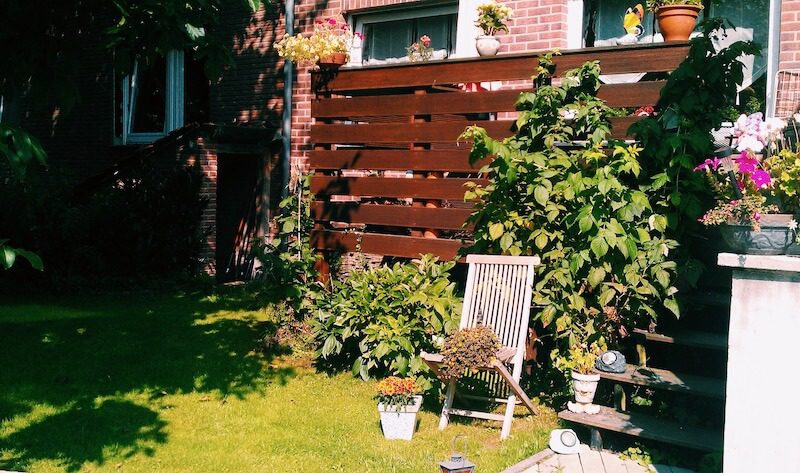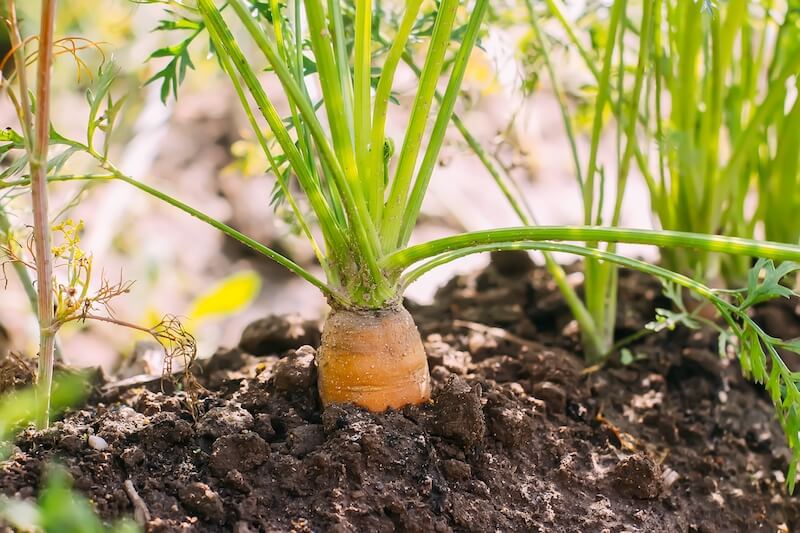
Top 5 Tips to Grow a Sustainable Garden
On average, the USA uses over 750 million litres of fuel, 32 million kg of pesticides, and billions of litres of water to maintain the garden. And that’s just one country! So are gardens really sustainable?
If done right, they can be! In fact, sustainable gardening could not only help cut down your ecological footprint but can also help conserve resources.
Here are 5 ways you can make your garden more sustainable:
- Grow your own food

From herbs and squashes to carrots, there are so many vegetables you can grow in your backyard! Even a small garden space is enough to make a rewarding harvest.
There are plenty of reasons why you should have a kitchen garden:
- It’s fresher and healthier. Vegetables could lose up to 30% of their nutritional value in just three days after being harvested. So the fresher you eat, the better it would be for your health.
- You have control over what goes into your garden. So you don’t have to worry about any chemical fertilizers and pesticides contaminating your food.
- It’s better for the planet. Growing your produce reduces the food waste as you could utilize the food scraps and are less likely to waste the food that we have grown.
But growing food does not mean your garden cannot be colourful. You can also grow edible ornamental plants that will serve as a vibrant addition to your garden and your plate.
2. Compost your waste

Using compost is the first step towards nourishing your organic vegetable garden, and it is also the best way to utilize your organic waste.
Composting at home is actually very easy and inexpensive. All you need is old bins or buckets, soil and your organic waste!
Remember to turn your compost every few days and encourage proper aeration to avoid the generation of methane which is responsible for the foul smell and is a potent greenhouse gas.
3. Avoid using chemicals
Whether you have a vegetable garden or an ornamental arrangement, chemical fertilizers, herbicides, and pesticides threaten the local ecosystem and us. Many widely used lawn chemicals are linked to numerous health problems, including hormonal imbalance, neurotoxicity, birth defects and cancer. These chemicals are also known to pollute water bodies and groundwater and ultimately impact the native species.
Natural alternatives – like composting, companion planting, and biological pest control – can solve this problem, in addition to enhancing the natural diversity.
4. Embrace the native biodiversity

Let’s be real, lawns are hard work, and as tempting as perfectly manicured lawns may look, they do more harm than good to the environment. The lack of biodiversity in the perfect, weeded lawns is already threatening native insects and birds by eliminating the vegetation they depend on.
Instead, opt for a biodiverse lawn that hosts native plants and encourages the growth of natural biodiversity. Such lawns are adapted to the local soil and climatic conditions, so they are easier to maintain. They also require less water and supplements and could help boost the bee and butterfly population!
This healthy diversity also hosts natural predators who work as biological pest control.
Furthermore, avoid introducing exotic plant varieties to your garden as the lack of natural predators could make the exotic varieties invasive, and it could upset the ecological balance.
5. Conserve the resources
You can’t be sustainable if you aren’t mindful of the resources. Maintaining a garden could require extra energy and water, but not if you know how to conserve these resources!
- A simple rainwater catchment system can save gallons of fresh water that would otherwise go to drain.
- Switch to manual or electric lawnmowers to cut down emissions.
- Cut down the water required for the plants by using smart irrigation techniques. Mulching could also prevent soil drying, which would further cut down the water required.
- Organic mulch made of garden waste like twigs and leaf litter would further reduce the waste and nourish the plants as it decomposes.





